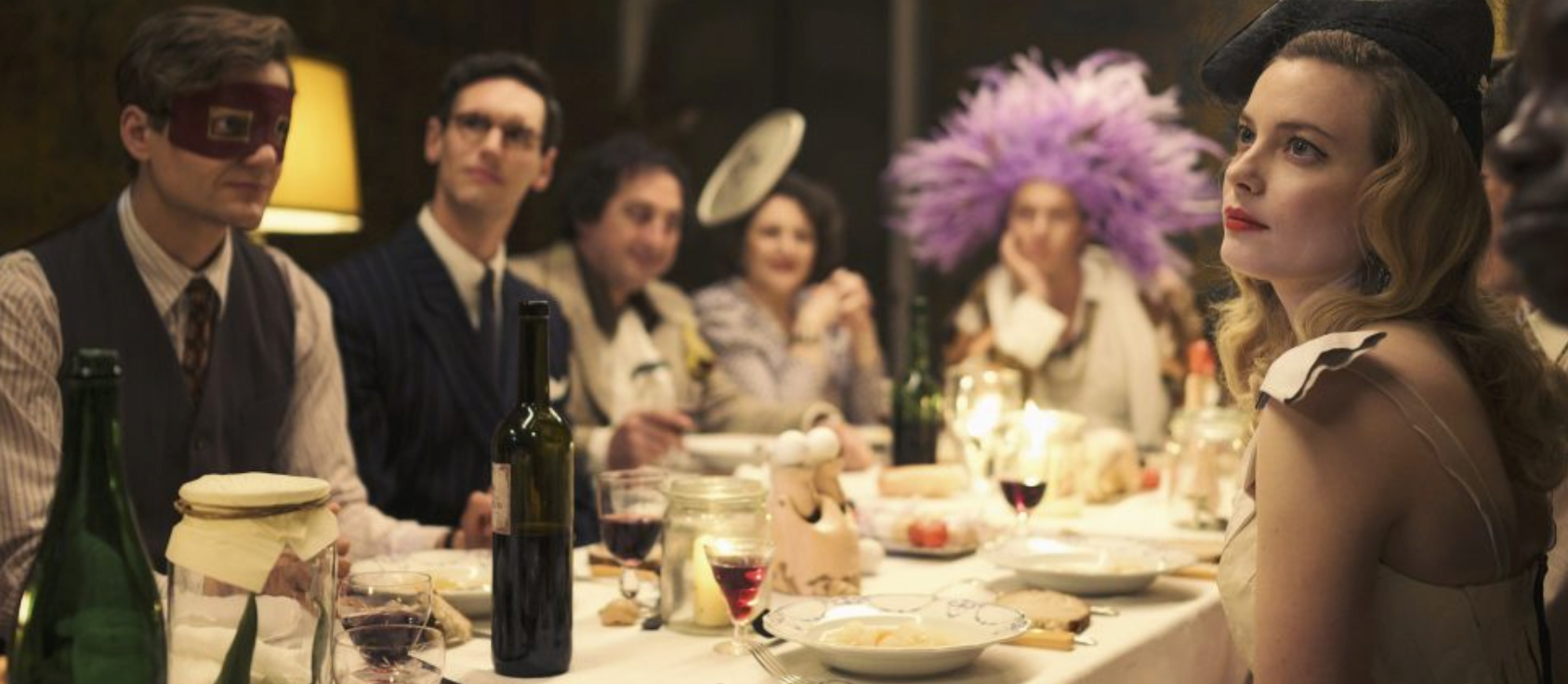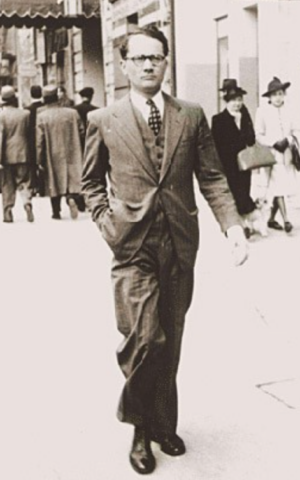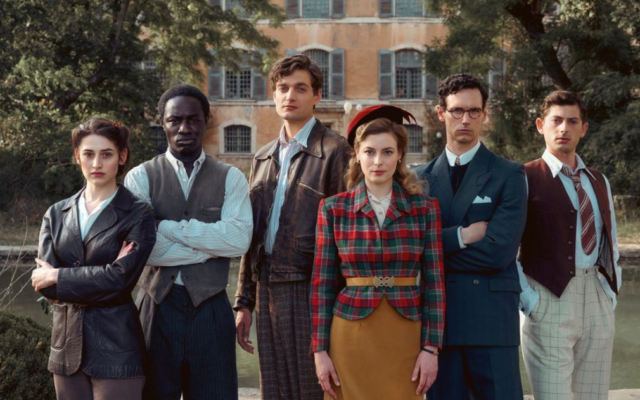Fry’s Long Overdue Recognition in ‘Transatlantic’
The new docudrama, now streaming on Netflix, is a fictionalized account of Fry’s heroic work to save artists and intellectuals just before America’s entry into World War II.
“Transatlantic” is the dull uninspired title of a new Netflix dramatic series based on one of the lesser known, but key figures, in the campaign to save prominent Jewish artists and writers during the Holocaust. The series is the latest project of Anna LeVine Winger, who is best known for “Unorthodox,” also on Netflix, and Daniel Hendler. It’s based on Julie Orringer’s novel, “The Flight Portfolio,” that came out four years ago.
The sumptuous series is set in Marseilles in the early 1940s, before America entered World War II but after the Nazi victory in France that led to the division of France into a Northern French nation and a Southern zone, known as Vichy France, and administered by a government of French Nazi collaborators. It was said to have been inspired by the classic motion picture, “Casablanca,” which was about the early years of World War II in Morocco, a country that was also part of Vichy France.
The quick victory by the Nazis trapped a large number of prominent Jews. Screenwriters Winger and Handler, who set up the story in early episodes of the series, lay out in straight forward terms the mission of Fry, played by Corey Michael Smith. As a journalist, who observed the rise of Hitler as a foreign correspondent in Berlin in 1933, he journeys to Marseille as part of an effort by an organization he had started in New York known as the European Rescue Committee. The goal of the organization was to help all those anti-Nazi writers and artists, as well as prominent Jews, to escape France.

Prior to arriving in Marseilles, he met with Eleanor Roosevelt, the president’s wife, who obtained a number of American visas that granted a refuge, on an urgency basis, to those intellectuals and artists who were stranded in the south of France. From an office in Marseille and the help of American diplomat Harry Bingham IV, the Jewish refugee Alfred Hirschmann, and an expatriate American heiress, Mary Jayne Gold, he helped many important refugees to escape.
In just a year of work, he and those he had recruited around him saved prominent figures and artists like Marc Chagall, Andre Breton, Max Ernst, and Jacques Lipschitz, harpsichordist Wanda Landowska, and writers like Hannah Arendt and Lion Feuchwanger, and Otto Meyerhof, a biochemist who later won a Nobel Prize, and according to the United States Holocaust Memorial Museum, some 2,000 others.
His work often conflicted with the State Department in Washington, D.C., where Secretary of State Cordell Hull and his assistant secretary, Breckinridge Long, supervised a concerted effort to deny visas to Jews trying to escape the Nazis, particularly in places like Marseilles.

Long had been ambassador to Mussolini’s Italy in the 1930s and had admired the fascist government. In 1938, after reading Hitler’s antisemitic manifesto, “Mein Kampf,” he wrote in his diary that “it is eloquent in opposition to Jewry and to Jews as exponents of Communism & chaos…My estimate of Hitler as a man rises with the reading of his book.”
Under Hull and Long’s leadership, the State Department denied 90 percent of the visas that were available to help those trapped in fascist Italy and Nazi Germany. While Fry’s work in the Netflix series is portrayed in glowing terms, the true dimensions of America’s failure to act in the year before World War II prevented visas from being issued to 190,000 persons desperate to escape.
Reviews of the series, posted to the Rotten Tomatoes website, have the program rated at 94 percent as being overwhelmingly positive. But there has been criticism that, to score dramatic points, the writers and producers have fictionalized or exaggerated some of the incidents that occurred during Fry’s stay in Marseilles.
What they did not fictionalize was the heartbreaking decision that Fry faced, as he turned down an almost endless series of appeals for help from those not deemed famous enough to be saved.
That fact, which emerges in stark reality from these years, is what sets this series apart from its inspiration, the 1942 production of “Casablanca.”
Fry was finally arrested in August 1941 by the Vichy French police and given two hours to leave Marseilles. He became an outspoken critic of the State Department, and, in December 1942, he wrote an early article in The New Republic magazine entitled, “The Massacre of the Jews.” In it, he called the early evidence of what was happening in Europe “the most appalling picture of mass murder in all human history.”
Before he died in 1967, the French government awarded Fry its Legion of Honor, its highest civilian decoration. In 1994, he became the first American to be honored by Yad Vashem as a “Righteous Among The Nations.”
- Arts and Culture
- Opinion
- Bob Bahr
- Transatlantic
- Netflix
- holocaust
- Anna LeVine Winger
- Daniel Hendler.
- World War II
- Vichy France
- Varian Fry
- European Rescue Committee
- Eleanor Roosevelt
- Harry Bingham IV
- Mary Jayne Gold
- Marc Chagall
- Andre Breton
- Max Ernst
- Jacques Lipschitz
- Wanda Landowska
- Hannah Arendt
- Lion Feuchwanger
- Otto Meyerhof
- Rotten Tomatoes




comments